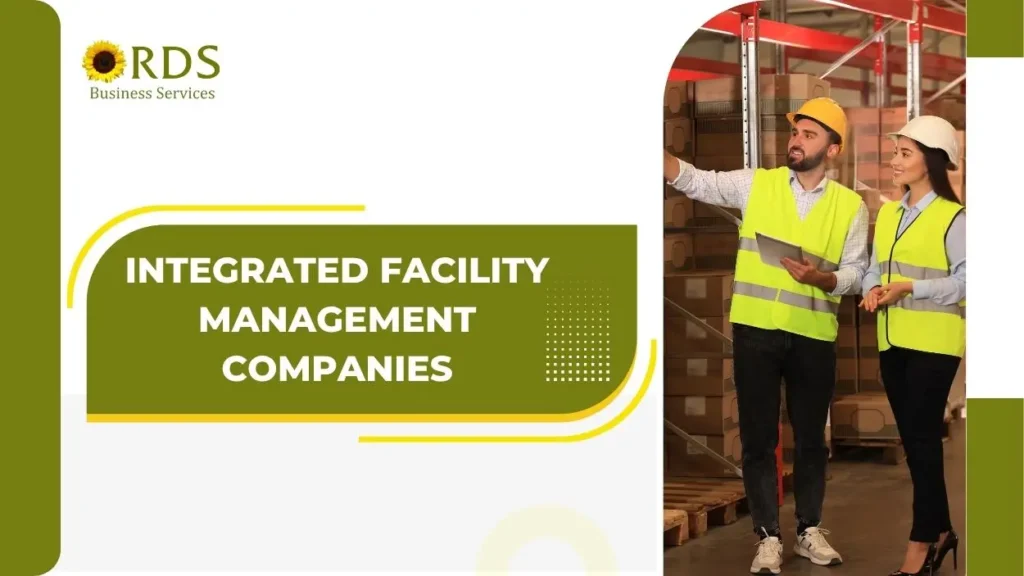
Table of Contents
Introduction
Facility management in Chennai is undergoing a transformative shift, driven by technological advancements, sustainability initiatives, and evolving business demands. As a dynamic metropolis with a diverse range of industries, Chennai requires sophisticated facility management solutions to ensure the seamless operation of buildings and infrastructure. This blog explores the latest trends and innovations in Chennai’s facility management landscape, offering insights into how these changes are shaping the future of the industry.
The Role of Facility Management in Modern Chennai
Facility management plays a crucial role in maintaining the functionality, safety, and efficiency of buildings and infrastructure. It encompasses a wide array of services, including maintenance, cleaning, security, space management, and energy management. Effective facility management ensures that businesses can operate smoothly, occupants remain safe and comfortable, and resources are used efficiently.
Ensuring Operational Efficiency
Operational efficiency is at the heart of facility management. This involves optimizing the use of resources, reducing downtime through proactive maintenance, and implementing best practices to enhance productivity. In a bustling city like Chennai, where businesses run around the clock, maintaining operational efficiency is paramount.
Enhancing Occupant Experience
A key objective of facility management is to enhance the experience of occupants, whether they are employees, customers, or residents. This involves creating a clean, safe, and comfortable environment that meets the needs of its users. From responsive maintenance services to efficient space management, facility managers play a vital role in ensuring occupant satisfaction.
Compliance and Safety
Compliance with safety regulations and standards is a critical aspect of facility management. Facility managers are responsible for ensuring that buildings adhere to local, state, and federal regulations, which helps to minimize risks and protect the well-being of occupants.
Technological Integration in Facility Management
Technological integration is revolutionizing the facility management industry. The advent of smart buildings, IoT devices, and data analytics is enabling facility managers to optimize operations and improve efficiency in unprecedented ways.
Smart Buildings and IoT
Smart buildings equipped with IoT devices can monitor and manage various systems in real time. These technologies provide valuable data on energy consumption, equipment performance, and environmental conditions, allowing facility managers to make informed decisions and perform predictive maintenance.
Building Automation Systems
Building automation systems (BAS) integrate various facility management functions into a centralized platform. These systems automate tasks such as lighting control, temperature regulation, and security monitoring, reducing the need for manual intervention and enhancing efficiency.
Data Analytics and Predictive Maintenance
Data analytics is transforming facility management by enabling predictive maintenance. By analyzing data from sensors and IoT devices, facility managers can predict when equipment is likely to fail and perform maintenance proactively, reducing downtime and maintenance costs.
Sustainability and Green Practices
Sustainability is a growing priority in Chennai’s facility management landscape. Businesses and facility managers are increasingly adopting green practices to reduce their environmental impact and promote energy efficiency.
Energy Management Systems
Energy management systems monitor and optimize energy consumption. These systems help identify areas where energy is being wasted and suggest measures to improve efficiency, such as upgrading to LED lighting or optimizing HVAC operations.
Sustainable Materials and Practices
The use of sustainable materials and practices is gaining momentum. Facility managers are opting for eco-friendly cleaning products, recycling programs, and sustainable building materials to minimize their environmental footprint.
Waste Management and Recycling
Proper waste management is crucial for sustainability. Facility management companies are adopting practices such as recycling, composting, and reducing single-use plastics to minimize waste. These efforts contribute to a cleaner, greener environment.
Flexible and Adaptive Spaces
The concept of flexible and adaptive spaces is gaining traction in Chennai. Businesses are rethinking their use of space to accommodate changing work patterns and occupant needs.
Space Optimization Techniques
Space optimization techniques involve reconfiguring layouts, creating multi-functional areas, and using modular furniture to adapt to different uses. These strategies help maximize the use of available space and enhance efficiency.
Hybrid Work Environments
The rise of remote and hybrid work models has led to a demand for adaptable office spaces. Facility managers are creating environments that support both in-person and remote work, including flexible seating arrangements, collaborative zones, and technology infrastructure for virtual meetings.
Co-Working Spaces
Co-working spaces are becoming increasingly popular, offering flexible and cost-effective solutions for businesses of all sizes. Facility managers are tasked with ensuring these spaces are well-maintained, secure, and conducive to productivity.
Data-Driven Decision Making
Data analytics is playing an increasingly important role in facility management. By leveraging data, facility managers can make informed decisions that enhance efficiency and improve overall operations.
Predictive Maintenance
Predictive maintenance uses data from sensors and IoT devices to predict when equipment is likely to fail. This allows facility managers to perform maintenance before issues arise, reducing downtime and maintenance costs.
Occupancy Analytics
Occupancy analytics provide insights into how spaces are being used. This data can inform decisions about space allocation, cleaning schedules, and energy usage, leading to more efficient and cost-effective facility management.
Performance Metrics
Facility managers use performance metrics to evaluate the effectiveness of their operations. These metrics can include energy consumption, maintenance costs, occupant satisfaction, and more, helping to identify areas for improvement.
Innovations in Chennai’s Facility Management Sector
Innovations in facility management are driving significant improvements in efficiency, sustainability, and occupant experience.
Robotic Cleaning Solutions
Robotic cleaning solutions are becoming increasingly popular in Chennai’s facility management sector. These automated systems can perform tasks such as vacuuming, floor scrubbing, and window cleaning with high efficiency and precision.
Artificial Intelligence and Machine Learning
Artificial intelligence (AI) and machine learning are being integrated into facility management systems to enhance decision-making and automate routine tasks. AI algorithms can analyze data from various sources to identify patterns and suggest improvements in areas such as energy management, security, and maintenance.
Sustainable Building Materials
The use of sustainable building materials is gaining momentum in Chennai. Facility managers are opting for materials that have a lower environmental impact, such as recycled or locally sourced materials. This not only supports sustainability goals but also contributes to the overall health and well-being of occupants.
Advanced Security Solutions
Security is a critical aspect of facility management, and innovations in this area are helping to create safer environments. Advanced security solutions include biometric access control systems, facial recognition technology, and AI-powered surveillance systems that can detect and respond to potential threats in real time.
Challenges in Facility Management
While the facility management industry is evolving rapidly, it also faces several challenges.
Balancing Cost and Quality
One of the key challenges in facility management is balancing cost and quality. While businesses are under pressure to reduce operational costs, it is essential to maintain high-quality services to ensure occupant satisfaction and compliance with regulations.
Adapting to Technological Changes
The rapid pace of technological advancements presents a challenge for facility management companies. Staying updated with the latest technologies and integrating them into existing systems requires significant investment and expertise.
Ensuring Sustainability
Achieving sustainability goals can be challenging, especially in older buildings that were not designed with energy efficiency in mind. Retrofitting these buildings with modern, sustainable systems can be costly and complex.
Managing Diverse Occupant Needs
Facility managers must cater to the diverse needs of occupants, which can vary widely depending on the type of facility and its users. Balancing the needs of different stakeholders while maintaining operational efficiency requires careful planning and coordination.
The Future of Facility Management in Chennai
The future of facility management in Chennai looks promising, with continued advancements in technology, a growing emphasis on sustainability, and a focus on enhancing occupant health and well-being. As the industry evolves, facility management companies will need to adapt to these changes and innovate to meet the evolving needs of their clients.
Embracing Digital Transformation
Digital transformation will continue to play a crucial role in the future of facility management. The adoption of digital tools and platforms will enhance operational efficiency, improve data-driven decision-making, and enable more proactive and predictive management of facilities.
Increasing Collaboration and Partnerships
Collaboration and partnerships will be key to the success of facility management in the future. Facility management companies will need to work closely with technology providers, sustainability experts, and other stakeholders to deliver comprehensive and integrated solutions.
Enhancing User Experience
Enhancing the user experience will remain a top priority for facility management companies. By focusing on occupant needs and preferences, facility managers can create environments that are not only efficient and sustainable but also comfortable and enjoyable for users.
Conclusion
Chennai’s facility management landscape is evolving rapidly, driven by technological advancements, sustainability initiatives, and a focus on health and wellness. The integration of smart building technologies, green practices, and data-driven decision-making is transforming the way facilities are managed, creating more efficient, sustainable, and user-friendly environments. As the industry continues to innovate, facility management companies in Chennai will play a crucial role in shaping the future of the city’s built environment.
At RDS Business Services, we are committed to staying at the forefront of these trends and innovations. Our comprehensive facility management solutions are designed to meet the unique needs of our clients, leveraging the latest technologies and best practices to ensure operational efficiency, sustainability, and occupant satisfaction. Contact us today to learn more about how we can help you navigate the evolving facility management landscape in Chennai.







